
Liberty is a city in and the county seat of Clay County, Missouri, United States and is a suburb of Kansas City, located in the Kansas City Metropolitan Area. As of the 2020 United States Census the population was 30,167. Liberty is home to William Jewell College.

William Jewell College is a private liberal arts college in Liberty, Missouri, United States. It was founded in 1849 by members of the Missouri Baptist Convention and endowed with $10,000 by William Jewell. It was associated with the Missouri Baptist Convention for over 150 years until it separated in 2003 and became independent. After becoming a nonsectarian institution, the college's enrollment fell by approximately 40% to 739 students in 2018. Jewell is accredited by the Higher Learning Commission.

Charles Henry Hardin was an American attorney and politician who was Governor of Missouri served in the Missouri Senate and the Missouri House of Representatives. He founded Hardin College and was one of the eight founders of Beta Theta Pi fraternity.
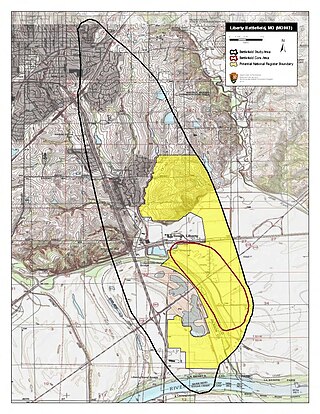
The action at Blue Mills Landing, also known as the Battle of Liberty, was a battle of the American Civil War that took place on September 17, 1861, in Clay County, Missouri. Union forces unsuccessfully attempted to prevent pro-Southern Missouri State Guards from northwestern Missouri from crossing the Missouri River near the confluence with the Blue River to reinforce Sterling Price at Lexington.

Clarence Andrew Cannon was a Democratic Congressman from Missouri serving from 1923 until his death in Washington, D.C. in 1964. He was a notable parliamentarian and chaired the U.S. House Committee on Appropriations. He is the longest-serving member of the United States House of Representatives from the state of Missouri.

Henry Sheffie Geyer was a politician, lawyer, and soldier from Missouri. Born in Frederick, Maryland, he was the son of John Geyer, saddler of Frederick Town. Geyer was of German descent, his father having come from Prussia.
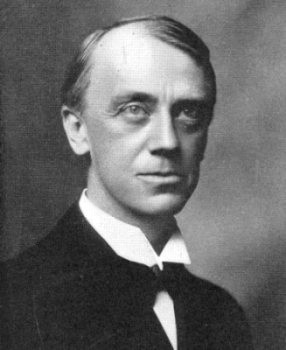
Walter Williams was an American journalist and educator. He founded the world's first journalism school at the University of Missouri, and later served as the university's president. An internationalist, he promoted the ideals of journalism globally and is often referred to as "The Father of Journalism Education".

The history of Columbia, Missouri as an American city spans two hundred years. Founded by pioneers from Kentucky in 1821 to be the county seat of Boone County. Its position astride the Boone's Lick Road led to early growth as settlers flooded into the Boonslick and eventually the West. In the 21st century Columbia is Missouri's fourth largest city and educational center.
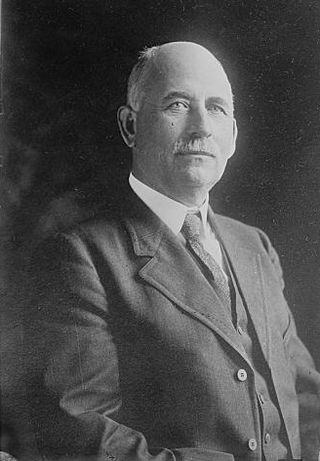
Dorsey William Shackleford was a United States Representative from Missouri.

Robert Patterson Clark Wilson was a U.S. Representative from Missouri.

Walter Naylor Davis was an American Democratic politician from the state of Missouri. He was the state's 34th Lieutenant Governor and a former commissioner of the Missouri Supreme Court.
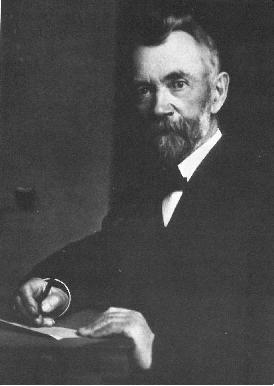
Robert August Holekamp was a businessman and apiarist from the St. Louis suburb of Webster Groves, Missouri. Holekamp was significant in the development of Webster Groves, and had state and national influence in the field of beekeeping.
The following is a timeline of the history of Savannah, Georgia, United States.
The following is a timeline of the history of the city of St. Louis, Missouri, United States.

Edwin William Stephens or E. W. Stephens (1849–1931) was an American publisher, journalist, and prominent leader in civic and religious affairs from Columbia, Missouri. He founded the E.W. Stephens Publishing Company and published a former daily newspaper in town known as the Columbia Herald. He also was active in the arena of national journalism in America, serving as president of the National Editorial Association. A prominent Baptist, he was president of the Southern Baptist Convention. In 1911, he chaired the appointed state commission that designed and built the Missouri State Capitol, which was completed in 1917. He also served as president of the board of curators of both his alma mater of the University of Missouri at Columbia, and the private / religious-affiliated all-women Stephens College, the latter being named after his father James L. Stephens and founded 1833.
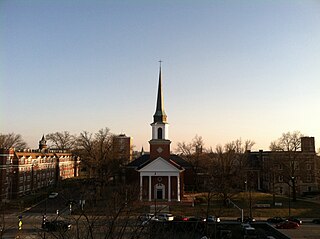
First Baptist Church is a historic Baptist church in Columbia, Missouri. In 1823, at the time of its founding, it was the first and only church in Columbia. The Church and its members have played a prominent role in civic and religious affairs in Missouri. The church's Georgian Revival style sanctuary sits conspicuously on Broadway in Downtown Columbia; it is the fourth church building and second at that location. Stephens College, formerly a baptist institution founded by church members, is across the street. First Baptist has both a traditional and contemporary Sunday services, and formerly hosted a Swahili-language congregation. The church is affiliated with the American Baptist Churches USA. In 2001, the congregation joined the Cooperative Baptist Fellowship and its longtime affiliation with the Southern Baptist Convention was ended. In 2004, the Odyssey Chamber Music Series was founded as part of a community outreach effort. In addition, the Plowman Chamber Music Competition, Columbia Handbell Ensemble, Esterhazy Quartet, and the University of Missouri School of Music utilize the sanctuary as a performance venue. William Jewell, namesake of William Jewell College in Liberty, Missouri, has been described as the leading force behind the creation of the church. The first meeting took place in the home of Charles Hardin, father of Charles Henry Hardin governor of Missouri.
William Newton Collins was an American football and basketball coach and college athletics administrator. He served as the head football coach at Missouri Wesleyan College in Cameron, Missouri from 1923 to 1925 and William Jewell College in Liberty, Missouri from 1927 to 1932. Collins was also the head basketball coach at William Jewell from 1928 to 1933, tallying a mark of 50–35.
Edwin Waterman Lee was an American football player and coach, and then attorney and judge. Lee attended Smith Academy in St. Louis, Missouri and then starred at Williams College, playing guard and tackle. In addition to playing football at Williams, Lee was also a member of Chi Psi fraternity. Chi Psi offers the Edwin W. Lee Award, presented to a person who is not an initiated member of the Fraternity, for noteworthy assistance to the Fraternity, Trust, or Alpha.
Wilbur Tyson Trueblood, Sr. was an American architect, based in St. Louis, Missouri. Trueblood was a chief architectural supervisor for the Federal Housing Administration (FHA). Two buildings he helped design are listed on the National Register of Historic Places in St. Louis County.
Norris A. Patterson was an American football coach and college athletics administrator. He served as the head football coach at William Jewell College in Liberty, Missouri from 1950 to 1967, compiling a record of 133–33–9. He coached Bill Snyder, who played as a defensive back at William Jewell from 1959 to 1962, later served as head football coach at Kansas State University, and was inducted into the College Football Hall of Fame in 2015. Patterson was also the athletic director at William Jewell from 1950 to 1968 and United States International University—now known as Alliant International University—in San Diego, California from 1969 to 1975.














